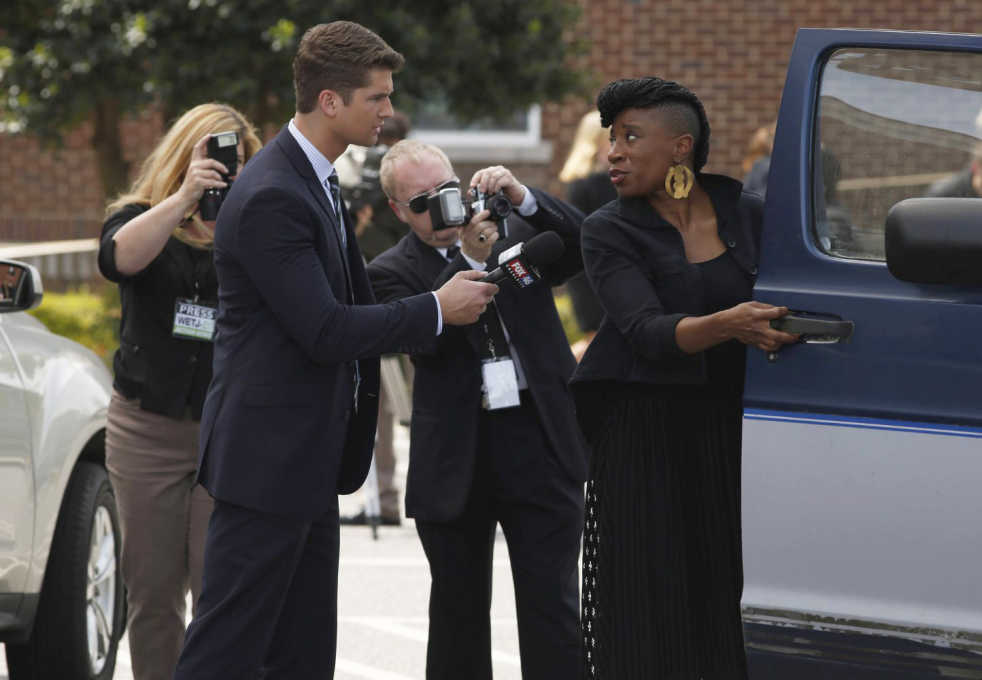Race, corruption, police abuse, child custody and sibling rivalry. A show which addresses all of these complex issues might be ambitious, but it just might also be brilliant.
On March 22, Fox aired the pilot episode of its new drama “Shots Fired.” The series, created by Gina Prince-Bythewood and her husband Reggie Rock Bythewood, examines the reaction of a town in North Carolina to the shooting of an unarmed motorist by a police officer during a traffic stop.
The premise of the show is, at least at first, unfortunately familiar for American audiences. Whether or not one believes that America is suffering from an epidemic of police abuse and violence, one cannot deny that the shooting of unarmed citizens by law enforcement has been the subject of significant coverage and discussion over the past
several years.
As the show progresses, however, its premise reveals its cleverness and novelty. The shooting that opens the pilot episode is not of a young, poor black man but of a middle class, suburban white teenager. The officer who shoots him is black. Those investigating the shooting are not friends of the police department but seemingly impartial investigators
seeking justice.
While the show does not appear to follow the white officer, black victim narrative that the audience is expecting, it certainly does not leave race out completely. From the beginning of the pilot, race plays a role in every decision made and conclusion drawn.
Preston Terry (Stephan James, “Race”), the attorney placed in charge of the case against the officer involved in the shooting, is chosen explicitly because he is black to avoid “inciting tensions” should the officer be indicted. This question of what role race should play in the investigation and discussion of police abuse is a central theme in the pilot episode, and Stephan James’ character wrestles with it constantly.
While the action and drama of the pilot intensify throughout its hour duration, the thematic climax of the episode comes in its first half.
During a press conference, Preston Terry gives a powerful speech mourning the death of “post racial America,” and declares as his aim the discovery of truth and the delivery of justice for all Americans, regardless of race.
Later, Terry reveals that race does have some influence over his view of the case when he discusses the matter with his investigator Ashe Akino (Sanaa Lathan, “Family Guy”). These doubts about the role of race are underscored when a second killing emerges, this one of a black teenager (possibly by a police officer). Still, the speech on justice and truth cements James’ performance as a strong one, and places Terry’s struggle over the significance of race at the thematic center of the show.
While much of the show is serious and socially aware, it also offers a thrilling plot with frequent twists. The series has much left to reveal, and audiences will remain captivated as long as the
producers keep them guessing about the truth.
The show’s greatest weakness may be its ambition. The producers introduce audiences to scores of interesting characters with their own subplots and personal conflicts, possibly setting themselves up for failure if they are unable to develop each character fully.
The subplot surrounding Ashe Akino’s shaky family life is easily the most compelling. Producers would be wise to focus on developing that one in parallel with the nearly as interesting plot concerning Preston Terry’s rivalry with his brother, who is a professional athlete.
Still, the show touches on several weaker subplots tangentially, and the creators will likely not have time to develop all of them.
The show could be improved significantly by a greater emphasis on Terry and Akino’s histories. Sanaa Lathan exhibits great acting potential as Akino in the pilot, and if she is given the opportunity to play Akino in more private settings, she may elevate the acting in the series to among the best in television right now.
While “Shots Fired” is treading on thin ice with its excess of subplots and characters, its compelling plot and the strength of its leading actors could make it an entertaining and thought provoking examination of several key American social issues.
